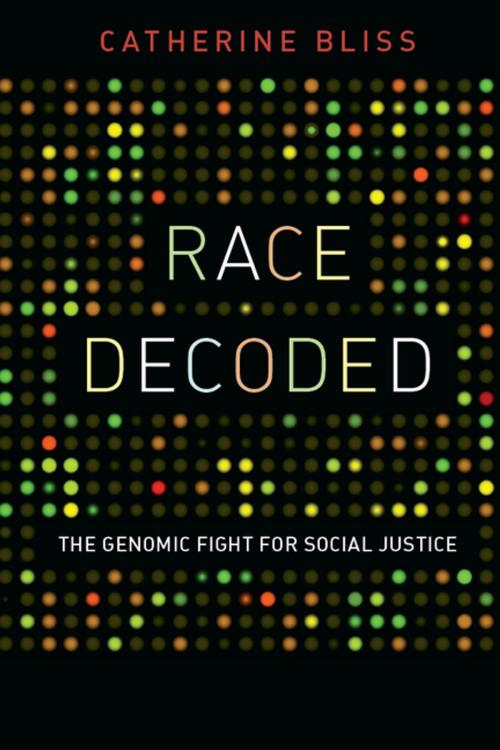Race Decoded
The Genomic Fight for Social Justice
Nonfiction, Social & Cultural Studies, Social Science, Sociology| Author: | Catherine Bliss | ISBN: | 9780804782050 |
| Publisher: | Stanford University Press | Publication: | May 23, 2012 |
| Imprint: | Stanford University Press | Language: | English |
| Author: | Catherine Bliss |
| ISBN: | 9780804782050 |
| Publisher: | Stanford University Press |
| Publication: | May 23, 2012 |
| Imprint: | Stanford University Press |
| Language: | English |
In 2000, with the success of the Human Genome Project, scientists declared the death of race in biology and medicine. But within five years, many of these same scientists had reversed course and embarked upon a new hunt for the biological meaning of race. Drawing on personal interviews and life stories, Race Decoded takes us into the world of elite genome scientists—including Francis Collins, director of the NIH; Craig Venter, the first person to create a synthetic genome; and Spencer Wells, National Geographic Society explorer-in-residence, among others—to show how and why they are formulating new ways of thinking about race.
In this original exploration, Catherine Bliss reveals a paradigm shift, both at the level of science and society, from colorblindness to racial consciousness. Scientists have been fighting older understandings of race in biology while simultaneously promoting a new grand-scale program of minority inclusion. In selecting research topics or considering research design, scientists routinely draw upon personal experience of race to push the public to think about race as a biosocial entity, and even those of the most privileged racial and social backgrounds incorporate identity politics in the scientific process. Though individual scientists may view their positions differently—whether as a black civil rights activist or a white bench scientist—all stakeholders in the scientific debates are drawing on memories of racial discrimination to fashion a science-based activism to fight for social justice.
In 2000, with the success of the Human Genome Project, scientists declared the death of race in biology and medicine. But within five years, many of these same scientists had reversed course and embarked upon a new hunt for the biological meaning of race. Drawing on personal interviews and life stories, Race Decoded takes us into the world of elite genome scientists—including Francis Collins, director of the NIH; Craig Venter, the first person to create a synthetic genome; and Spencer Wells, National Geographic Society explorer-in-residence, among others—to show how and why they are formulating new ways of thinking about race.
In this original exploration, Catherine Bliss reveals a paradigm shift, both at the level of science and society, from colorblindness to racial consciousness. Scientists have been fighting older understandings of race in biology while simultaneously promoting a new grand-scale program of minority inclusion. In selecting research topics or considering research design, scientists routinely draw upon personal experience of race to push the public to think about race as a biosocial entity, and even those of the most privileged racial and social backgrounds incorporate identity politics in the scientific process. Though individual scientists may view their positions differently—whether as a black civil rights activist or a white bench scientist—all stakeholders in the scientific debates are drawing on memories of racial discrimination to fashion a science-based activism to fight for social justice.















